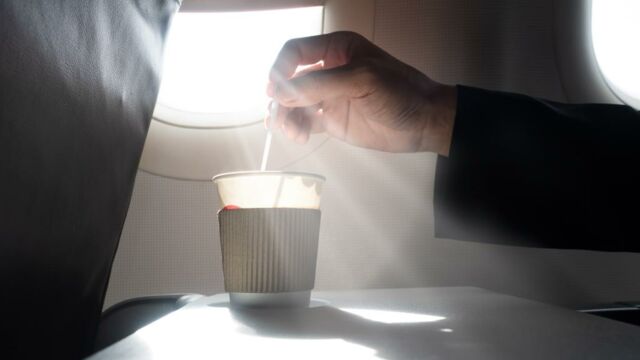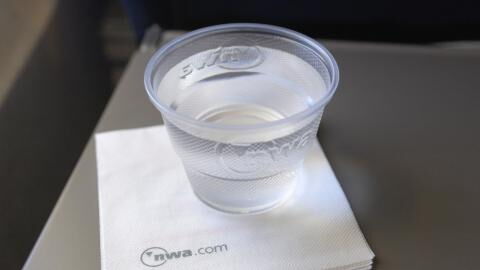Flying can be difficult for some of us. Sometimes the only thing that can save you from your boredom is a nice hot cup of tea or coffee to wake up and feel refreshed after many hours up in the air. But you might want to think twice before ordering these breakfast staples.
Discover our latest podcast
As NBC 5 previously reported, the water used for tea and coffee on board is tap water, not bottled water. Flight attendant Kat Kamalani said in a TikTok video in January that most airline crew members don't actually drink beverages made with water on the plane.
Rule number one, never consume any liquid that is not in a can or bottle.
@katkamalani Just promise me you won’t 🤢 #flightattendantlife#travelhacks#traveler#cleaninghacks#influencers#foodhack
♬ original sound - Kat Kamalani
Bad water quality
It's not the coffee beans, or the tea leaves that flight attendants are avoiding—it's the tap water, crew members said. A 2019 study on airline water by the Hunter College NYC Food Policy Center at the City University of New York and DietDetective.com examined the Environmental Protection Agency's water safety standards and found that 'many airlines eventually provided passengers with unhealthy water.
After analysing and rating 11 major international airlines and 12 US regional airlines for the quality of their drinking water, the study found that seven international airlines and almost all regional airlines had poor water quality.
In a sample of 158 aircraft taken by the EPA in 2004, 13% contained coliform bacteria. According to the sample, two of the planes had dangerous E.coli in the water. And as Insider previously reported, another EPA study found that one in eight planes did not meet the agency's water safety standards.

Bacteria, in spite of regulations
The Association of Flight Attendants-CWA previously declared:
Water on board is regulated by the Environmental Protection Agency to ensure safe drinking water on the plane. The Flight Attendants Association lobbied for this regulation over 15 years ago. The regulation gives broad discretion to airlines on how often they must test water and flush tanks. The AFA believes that this regulation does not go far enough and is not sufficiently enforced.
The bacteria is likely introduced while the water is in transit, NBC 5 reports. According to a 2015 study published in the International Journal of Environmental Research and Public Health, there are more microorganisms in transport vehicles than in the original source of water, allowing the organisms to be freely transferred from truck to plane.
Kat Kamalani has also linked water quality to the lack of infrequent cleaning of hot water machines, as previously reported by Insider. On TikTok, the flight attendant urged people to avoid coffee and tea, as the machines 'are rarely cleaned unless they are broken,' she said in her January video.
Dr. Cedric Spak, an infectious disease specialist at Baylor University Medical Center, told NBC 5 that people with weakened immune systems should avoid drinking the beverages on flights. He added that people with small children should 'think twice' about filling their bottles with aeroplane tap water.
It doesn't seem like a very good idea.
The 2019 airline water study by the Hunter College NYC Food Policy Center at the City University of New York and DietDetective.com came to a stronger conclusion:
NEVER drink water on board that is not in a sealed bottle. Do not drink coffee or tea on board.















